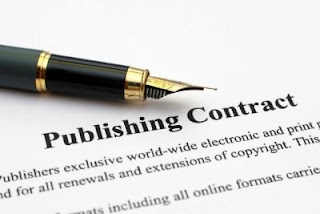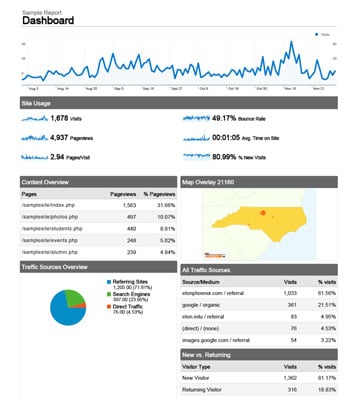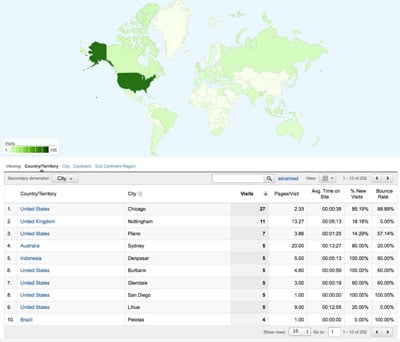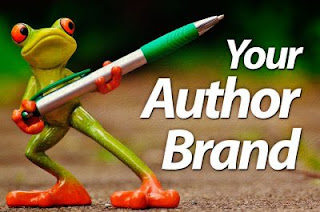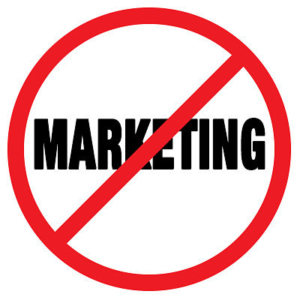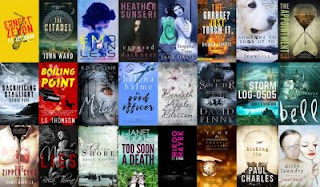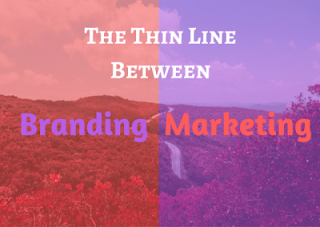We like agents. Like and respect them.
Their job is exceptionally demanding: nearly all reading work is done outside of office hours and since agents read a lot, that means they’re working late pretty much every night.
And they take risks. When an agent takes on a new writer, they’re committing upfront to a lot of work which will only be repaid if the agent is correct that the writer’s manuscript is or becomes saleable, with the agent’s help.
Given how fierce the competition is, it’s impressive that agents have the confidence and commitment to keep fishing from the slushpile – yet fish they do.
What’s more, an agent’s skills are very varied. Literary excellence lies at the heart of things, of course, but they need to be as pushy as car salesmen when it comes to auctioning a manuscript, as tough as lawyers when it comes to negotiating a contract, as silky smooth as a diplomat when it comes to smoothing ructions between authors and publishers and, of course, a good agent always has a firm strategic overview of their client’s career development.
So – we repeat – we like and respect agents in general, but there are always exceptions. Agents who are no good, or decent agents who mess up now and again. We’re not going to name names in this post but there are patterns that do recur and which really, really shouldn’t.
#1 The three-year-old good-bye
Sometimes, things don’t work out. That’s fine. An agent takes on an author. Tries to sell the manuscript. Can’t. Hates the second MS that the author produces. Decides that enough is enough. That story – or variants on it – are common enough. And that’s okay. Picking manuscripts from the slushpile IS a chancy business and agents can’t get it right all the time.
But it matters how an agent breaks the news. A professional client phones the author and says, ‘Look, I loved your first MS and made an honest effort to sell it. I didn’t succeed. In all honesty, I don’t like this second MS and I’m not sure that I’m still the right agent for you. I wish you the very best of luck in your future career, but I think we need to part company.’
Obviously no author loves that. On the contrary, any normal author will obviously feel upset and alarmed. But at least the conversation is direct, truthful and non-accusatory. It is, in fact, a professional way to break bad news. What we hate – and what is far, far too common – is that agents break the bad news in incredibly bad and stupid ways. The classic version of this is that the author emails the agent.
No answer.
Politely reminds the agent that he/she had a question, and asks for a response.
No answer.
Repeats the reminder, pointing out (still politely) that the question is (a) important and (b) still unanswered.
At which point the agent tantrums back, ‘Well, if you keep hounding me like that, I think it’s pretty clear you no longer trust me as an agent, and without trust, what are we? GOODBYE!’ [And slams phone down, forever.]
That’s not okay. It’s just not how any professional behaves ever. Yet we do hear stories along those lines at least once a month, and involving numerous agents, some of whom work at very well known and prestigious agencies. For sure, sometimes the author in question has been too pushy, or even crass, in demanding excessive amounts of the agent’s time. But not always. Sometimes the agent has simply failed to deliver bad news in a professional way. That’s not fine.
How often does this happen? Often. It’s the complaint we hear most frequently.
How bad is it? 3/5 bad, where 5 is worst
#2 Agents don’t communicate key info
Agents are agents. You – the writer – are the principal. That means that while your agent may execute business on your behalf, they are only ever a proxy for you.
And obviously, you’re nicely brought up and you won’t ask stupid, excessive or intrusive questions. But you do, for example, have a perfect right to know things like this:
– how many publishers have seen my work?
– which editors at those publishers did you send it to?
– why – briefly – did you choose those editors/publishers?
– what (roughly, and maintaining any necessary confidences) did those editors say in response?
It’s YOUR work and you have every right to know those answers. Indeed, you shouldn’t really need to ask those questions: it should be completely routine for agents to discuss those things with you. You may, of course, choose to say, ‘Look, you know this area vastly better than I do. I trust your judgement, just go out there and do what you can.’ But if you ask the questions mentioned – or others of equal significance – then you should damn well get answers. Yet some agents are feeble about giving answers. Again, not okay.
How common? Fairly common – much more so than it should be.
How bad? 4/5
#3: Agents don’t guide you through the publication process
You’re an industry newbie. Your agent isn’t. So a non-negotiable part of their job is to hold your hand in your journey to publication. That doesn’t mean you get to talk over every tiny detail with them: agents have limited time and you need to be sober about how much time and attention you (and your particular project) can demand.
That said, we recently heard about an author who had never been to a meeting with their publisher, and hadn’t even seen their book cover prior to publication. That’s appalling behaviour by the publisher, of course, but an agent should not have allowed that to happen. It’s not okay. Ever. Under any circumstances.
How common? Very rare, fortunately.
How bad? 5/5
#4: Not properly considering an author’s priorities at auction
What does an author want from a book deal? Well, publication certainly. Money, yes. But what else? Might you want a prestigious publisher? Or an editor with whom you have excellent personal chemistry. Or one who has a more holistic and flexible view of your likely career path than another.
In short, you may have numerous motivations, only one of which is cash. And your agent has to respect that. He or she needs to get the best available offers, then lay them in front of you and ask: which is it to be? Obviously you’ll rely on your agent’s intelligence and advice in making that choice. You’ll want to meet, or at least speak to, your putative editor. Then you’ll make your decision taking everything into account, not just the money.
Most agents we know will totally respect this. Indeed, if you probed them about it, they’d suggest – rightly, in our view – that if Publisher A offers 10% less cash than Publisher B, but is a better fit in all other respects, that ‘lower’ offer would prove more lucrative in the long run, as your career prospects will be better. So most agents will respect your non-financial motivations and will work hard to find the right fit as well as the right cash.
But not all agents. Again, we heard about one agent recently who boasted to a senior publisher that she never allowed her clients to take anything but the highest advance. She made that seem like a feat of machismo, of negotiating prowess. But that’s bullshit. It’s terrible agenting and it betrays the client. It shouldn’t happen.
How often? Hard to know. We think rare, but we could be wrong.
How bad? 2/5
#5 Talking crap in public
Most agents we know are open, approachable and warmly encouraging of new talent. That extends even to those senior agents who, realistically, aren’t going to get most of their new clients from the slushpile. But even those guys know that some of the biggest stars on their roster started out as total unknowns, and they respect the huge community of unknown writers toiling away out there.
But.
There are also agents who – in public, and to audiences containing wannabe authors – speak incredibly disdainfully of unpublished authors. When agents do that, it’s incredibly corrosive. The stories instantly spread on the internet and a false, but highly destructive, meme gets spread that agents hate writers. That the industry is snobby and exclusive. That agents are always secretly laughing behind the backs of the as-yet-unpublished.
Our Festival of Writing is a place for agents to meet writers, offer feedback on work, mix and mingle, answer questions. That helpfulness, that warmth is the real truth about agenting, but one snobby and stupid comment can destroy those good impressions in a moment. We don’t like those attitudes and we wish they would vanish.
How often? Rare, it just gets highly reported.
How bad? 1/5 [it’s normally only a moment of stupidity]
#6 Consorting with muggers
Some agents have ties with vanity publishers – the old-fashioned sort who demand stupid money upfront for a product that they know damn well will never sell in any meaningful quantity.
We have no problem with self-publishing per se, but for almost all purposes these days the natural entry route is e-publishing. That’s cheap (or even free) and reaches a massive audience. The idea that agents, of all people, should be inviting writers to hook up with vanity publishers is simply disgraceful, yet we know at least one agent who has a habit of doing just that.
How common? Not too common, thankfully.
How bad? 5/5 This behaviour is utterly unethical in our view.
#7 Charging reading fees
No literary agency should ever charge you to read your book, to send it out to publishers, or levy any other compulsory upfront fee. This matters because agents are kept honest by having to work on commission. If they think your book isn’t going to make it with publishers, they won’t make money from it, so they will politely reject your work. If they could make a few bucks just by stringing you along, then unscrupulous ‘agents’ would no doubt do just that.
Luckily, the practice of charging reading fees is exceptionally uncommon these days. We can think of one US-based scammer and two UK-based ‘agencies’ operating like this in the last ten years. And fortunately, the agent-as-scam business model doesn’t work: the scammers always go broke.
How often? Very rare.
How bad? 4/5
Oh, and we know we promised you seven ways that agents can fail, but here’s one last one: a bonus to you for reading so far.
#8 Agents demand exclusivity and then never do anything
Sometimes agents demand your manuscript in a burst of excitement, ask exclusivity as they read it, and then, nothing. Nothing at all. An echoing void.
There’s probably not much more to that behaviour than poor time management, but it can really mess up your life. The good news here is that you don’t have to let it. First, you should never offer exclusivity for more than a week. Secondly, we’d gently suggest that you don’t offer exclusivity at all. If an agent wants your work, there’s no reason why they shouldn’t compete for it. (It’s different if an agent is working on a set of suggested editorial notes: then it IS reasonable for them to ask for something in exchange, like exclusivity.)
And if you feel you’re being ignored, then don’t do nothing. After a couple of weeks has gone by, just drop a simple note that says you want to go on seeking representation and, while you’d warmly welcome that agent’s involvement, you will be going out to other parties as from Monday, or whenever. Don’t pick a fight. Just make it clear that this pause is not forever. Any half-decent agent will totally respect your right to do that, so don’t be afraid to do so.
How common? Yep, pretty common, we’re sorry to say.
How bad? 1/5 – you can always just walk away
Culled from Jericho Writers

